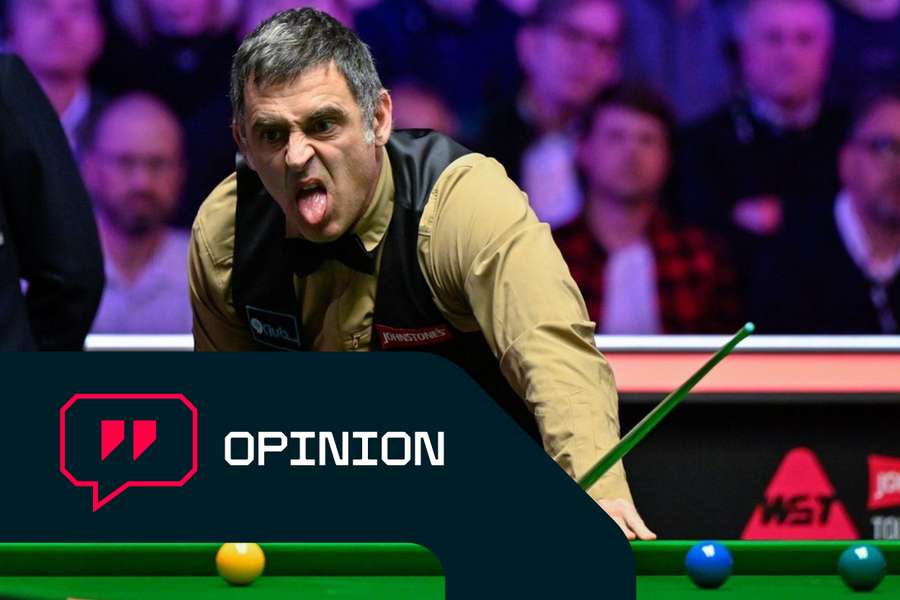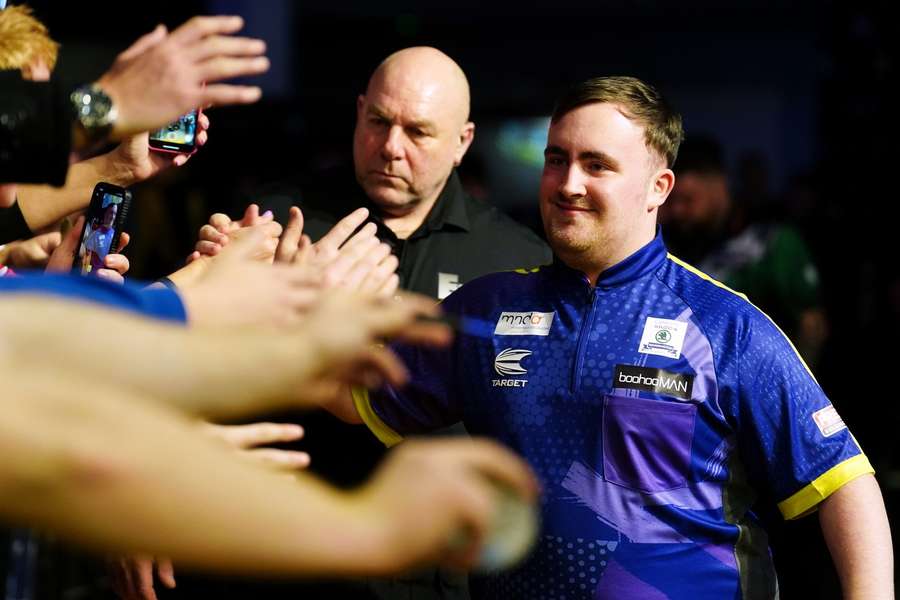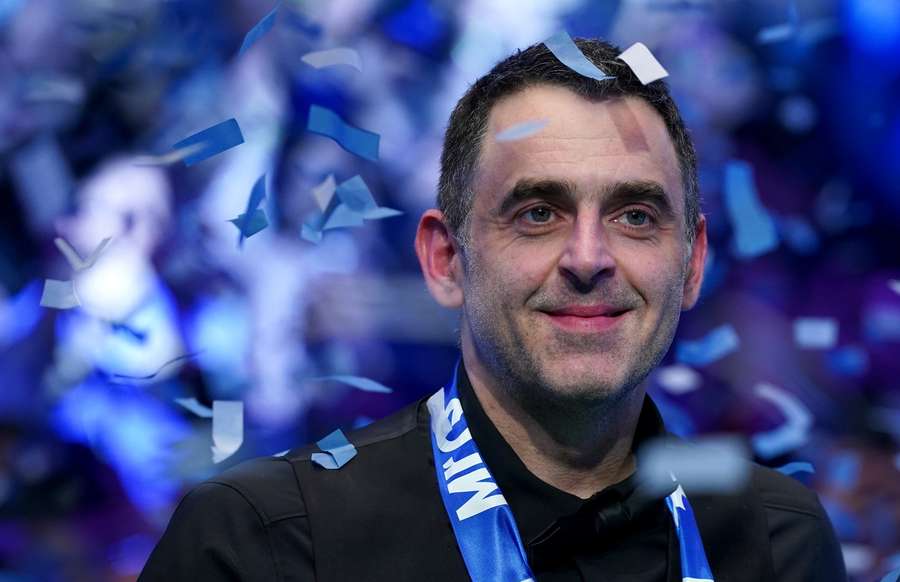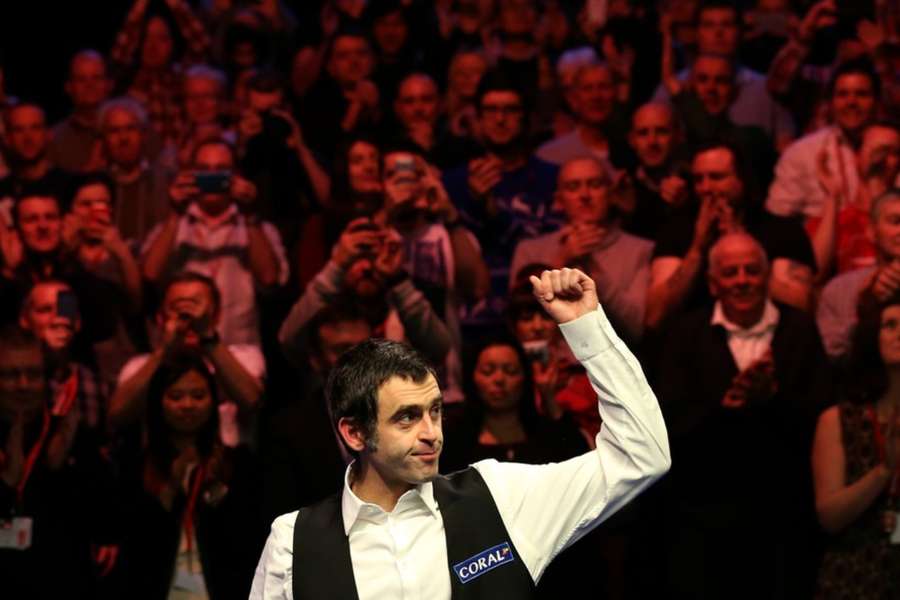OPINION: Snooker and Ronnie O'Sullivan desperately need a Luke Littler

His meteoric rise to the final - and subsequent competitiveness in the Premier League - has darts fans dreaming of a new golden age, with Littler primed as the next charismatic face of the sport set to vie with the likes of Luke Humphries and the one-time new kid on the block, Michael van Gerwen.
So soon in his career, Luke Littler is already a name that holds the same level of household gravitas as the legendary Phil Taylor, albeit with a fair few titles still to go.

On the other hand, snooker finds itself in an altogether different position. While Ronnie O'Sullivan remains a box office draw - as he has been since the 90s - questions linger about the sport's future.
To put it bluntly, snooker desperately needs its own Luke Littler as soon as possible - and, realistically, probably a few Nukes at that.
O'Sullivan himself acknowledges this.
"If you look at the younger players coming through, they're not that good really," O'Sullivan told the BBC in 2020 during the World Championship at the Crucible.
"Most of them they'd probably do well as half-decent amateurs, not even amateurs they're so bad.
"A lot of them you see now, you think 'I'd probably have to lose an arm and a leg to fall outside the top 50'.
"So that’s really why we're still hovering around because of just how poor it is."
It's a characteristically cocky sentiment that's hard to argue with.
While some names can just about grab the attention still within the sport: Judd Trump, Mark Selby, John Higgins, even the emergence of players such as Luca Brecel or Hossein Vafaei, none are really in the same stratosphere of the Rocket, and none can draw in anywhere close to the audience figures that the 48-year-old can, whether it's him actually playing or simply just running his mouth.
It's evident on the TV coverage of the top snooker events - and in particular for the World Championships - that much of the household names, the genuine star quality of the sport, it's all sitting on the pundits' sofa or in the commentary box.
Steve Davis, Stephen Hendry, John Parrott, John Virgo. All are legends of the sport that people know and love and remember fondly, and each is still more well-known in 2024 than most of the current roster of players.
That's a pretty worrying state of affairs for the sport.
Now, with whispers of decline and a lack of genuine challengers, snooker risks losing its most recognisable star - with the now 48-year-old regularly threatening to walk away from the game for good - without a fresh injection of excitement, without a rivalry of Senna/Prost, Federer/Nadal, Frazier/Ali proportions, without any genuinely unmissable entertainment at the table seen since O'Sullivan and Hendry last locked horns.
And that is arguably the worst thing that could happen to snooker's history.
The seven-time world champion burst onto the scene as someone capable of doing what Littler himself came so close to doing in January.
While The Nuke fell at the final hurdle to Humphries at Alexandra Palace, O'Sullivan beat Stephen Hendry in the UK Championship final to become the youngest player to win a ranking title at age 17 years and 358 days, and he remains the youngest player to achieve the feat to this day.
He is also the youngest player to win the Masters, having claimed his first title in 1995, aged 19 years and 69 days.
So, what qualities would this "Littler" possess? Well, effectively, it would be a mirror image of that young O'Sullivan.
On the surface, exceptional talent is obviously a must. But snooker demands more than just raw ability. It requires a blend of focus, temperament, and a touch of showmanship – qualities O'Sullivan embodied in his youth and still weaponises today; before, during and after his time at the table.
More importantly, snooker needs a player who can connect with a new generation. A young player, comfortable in the social media age and capable of captivating audiences, could be the game-changer.
The sport's demographics are ageing, and its presence in popular culture has waned - unlike darts, which has grown into a global force with glitzy events, mass-market level production and a genuinely lively, colourful, fun feel.
Promising youngsters are on the circuit, but none have captured the public imagination. Perhaps a more structured development system, something O'Sullivan himself laments the lack of, could help unearth hidden gems.

Those in the know in the world of darts knew of Littler's impending arrival after the youngster began to dominate the youth circuits, but even they couldn't have predicted the swiftness of his rise, and everyone has ridden the wave ever since the turn of the year.
The arrival of a "Littler" wouldn't diminish O'Sullivan's legacy, nor would it be something to scare O'Sullivan off. It would create a captivating narrative – a torch being passed, a new blockbuster rivalry forged.
With a new star challenging the established order, snooker could recapture the magic that captivated fans in the sport's golden years back in the 80s and 90s.
Snooker may not find its "Littler" overnight, but the need for a youthful spark is undeniable.
The sport itself is in desperate need of freshening up, moving away from still feeling like it's taking place in a smoke-filled working men's club sport and heading towards a more modern, colourful era.
Talk of potential investment from Saudi Arabia is rife, with some suggesting that a move to swipe the World Championships from Sheffield's Crucible to somewhere in Riyadh is a real possibility in a few years when the current deal for the tournament's traditional home expires in 2027.

While the "sports-washing" aspect - a term notably omitted by O'Sullivan (who seems to support the proposal, because money) and those close to the story - would be a somewhat disappointing solution to the problem, it may unfortunately be just the injection of life and finance this dwindling, once cherished sport needs.
The future of snooker as a mainstream entertainment brand hinges on finding that next generation of talent - someone to reignite the public's love for the green baize and ensure the sport thrives long after the curtain closes on Ronnie O'Sullivan's remarkable career. Because that time is approaching faster than we think.
Darts had Taylor after Eric Bristow, then Van Gerwen after Taylor - and now Littler seems to be the first of a new tidal wave of talent on the horizon, as more and more inspired youngsters join darts clubs up and down the country looking to get in on the act and emulate what they're seeing on TV, Instagram and TikTok.
Snooker needs its own grassroots change and top-level disruptor soon, or the sport risks entering a post-O'sullivan dark age.

